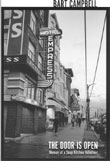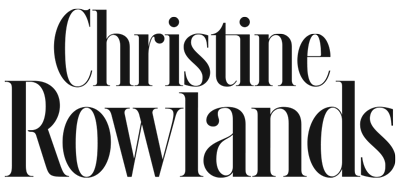… and not about nobly starving for their art, either.
We’ve all seen or read Charles Dickens’ A Christmas Carol. In this classic tale, the wealthy miser Ebenezer Scrooge is shown the worlds of the poor by three spirits, and is especially affected by the glimpse into the life his own underpaid clerk, Bob Crachit, and his son Tiny Tim. In the process, Scrooge becomes a better, more generous man.
Charles Dickens was undoubtedly scarred by experiences with poverty in his own childhood, and his entertaining stories were also sharp weapons for social reform in late Industrial Revolution England. He helped his readers see vividly what it was like to be poor.
Back in the day, poverty was bleak. And things haven’t improved much since. Here in BC, where child poverty rates and costs of living are both sky-high, a member of the provincial legislature (the Opposition party, natch) is spending the month of January trying to live on the welfare rate for a single individual, $610. His name is Jagrup Brar and he’s the MLA for Surrey-Fleetwood – a riding kitty-corner to the notorious Whalley/Central City area of Surrey.
He’s coming in for a hefty dose of criticism for the social experiment, perhaps mainly because of the high salary and pensions for MLAs in BC, which increased by a large percentage in the past few years while minimum wage and social assistance rates stagnated.
He’s hardly the first politician or writer – two professions whose members are usually drawn from the middle class – to journey into the realm of the poor and write about the experience. Some might call this exploitation, accusing writers of sensationalizing or othering (to use an anthropological term) people in poverty. I suspect this criticism is rooted in the fear: 1) that there are, in fact, different social classes, and 2) of trying the same thing.
But however uncomfortable it makes us, reading accounts of living among those of a different social stratum than ourselves makes us more compassionate people, and less judgmental of those whose struggles are different. Three of my favourite works on poverty are:
 Down and Out in Paris and London, George Orwell (1933)
Down and Out in Paris and London, George Orwell (1933)
While not a biographical account, this book vividly describes the struggles of a young writer working menial jobs in Paris restaurants and being homeless and penniless in London. In the latter part of the book especially, the writer is confounded by the amount of going through the motions one has to do in order to receive charity, how doing such motions prevents him from getting real work, and how being branded an outcast by virtue of being homeless and in receipt of charity prevents him from getting out of cycle of poverty. But, as he famously writes, there is also ” a feeling of relief, almost of pleasure, of knowing yourself at last genuinely down and out. You have have talked so often of going to the dogs – and well, here are the dogs, and you have reached them, and you can stand it.”
 Nickel and Dimed: On (Not) Getting By in America, Barbara Ehrenreich (2001)
Nickel and Dimed: On (Not) Getting By in America, Barbara Ehrenreich (2001)
The author, an established American writer with a bent for social reform, came up with the idea of leaving her comfy writer’s life and going undercover to see how people actually survive on minimum wage. Spoiler: they don’t. As Ehrenreich finds in stints as a waitress, hotel chambermaid, Walmart clerk and nursing home aide (a minimum wage job in the US), there are no special economies among the poor, and a host of costs, from having to rent by the month at expensive yet rundown motels when you don’t have enough funds for an apartment to having to eat convenience foods and fast food rather than cooking meals due to lacking a kitchen. Not to mention the everyday indignities of being a foot soldier in the minimum wage army – where labour is easily replaced and they don’t let you forget it. Ehrenreich doesn’t leave her writer’s skills behind, however, so this book entertains as it enlightens.
 The Door is Open: Memoir of a Soup Kitchen Volunteer, Bart Campbell (2001)
The Door is Open: Memoir of a Soup Kitchen Volunteer, Bart Campbell (2001)
This book is based on Bart Campbell’s journals of volunteering at a soup kitchen in Vancouver’s Downtown Eastside, an area often called “Canada’s poorest postal code” and known for rundown hotels, dive bars, open drug use … You don’t have to look to find poverty and struggle here, it’s all right there in the open. As Campbell writes about the soup kitchen’s denizens and Brother Tim, the charismatic priest who runs the place, he covers a wide range of topics on life at street level: charity, drugs, prostitution, foster kids, alcoholics, police and prisons, Aboriginal people, flophouses. The stories and diary excerpts provide a window into this world, one that Campbell is aware of being not all that far away. Despite awakening readers to the feeling that there is indeed a system, riddled with good intentions, that keeps the poor in place, he also gives us a glimpse of the community that sustains people when they have little else to live on.
What can be done? I’m not sure but awareness is a start. By reading first-hand accounts, you start to blame people less and start looking at the systems and circumstances that create poverty, from mass layoffs to excessive bureaucracies to attitudes about welfare to bad luck to the simple fact that it takes a lot to swim upward in a downward spiral.

have you read a christmas carol becuse charles dickens explained some of the magic of christmas in that.
Charles Dickens was a good explainer of stuff. Including Christmas. He did put it in the title after all.
sitemap page
I haven’t checked in here for some time as I thought it was getting boring, but the last several posts are really great quality so I guess I will add you back to my daily bloglist. You deserve it my friend. 🙂 Morning Star Sitemap
Um thanks. Feel free to stop by sometime for future exciting posts.